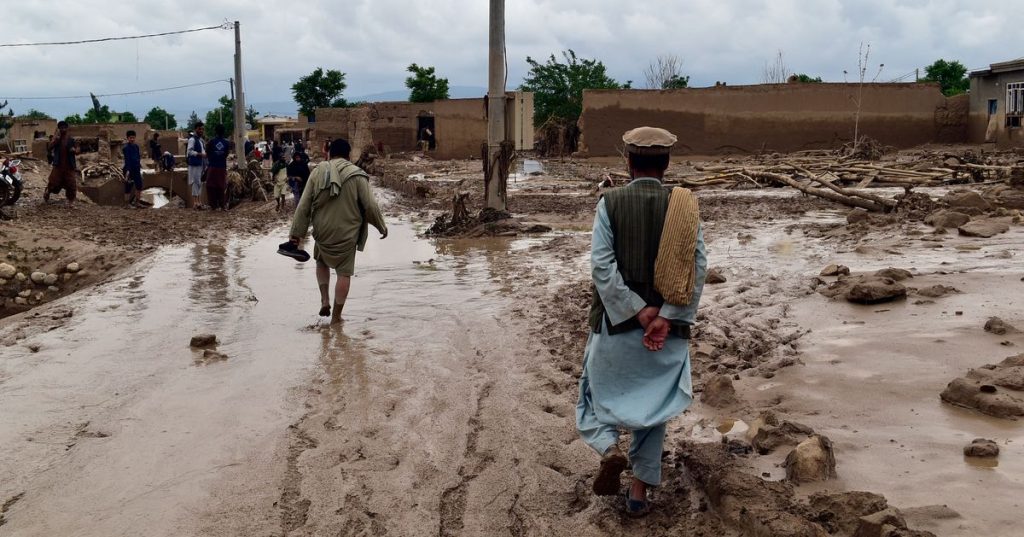Flash floods in Afghanistan caused by heavy seasonal rains have led to the deaths of over 300 people and the destruction of more than 1,000 houses, according to the U.N. World Food Program. The floods mainly impacted the northern province of Baghlan, where the situation was particularly dire on Friday. In Takhar province, at least 20 people were reported dead as a result of the flooding. The Taliban government spokesperson, Zabihullah Mujahid, stated on social media that the floods have caused significant financial losses and widespread devastation in provinces like Badakhshan, Ghor, and Herat.
Efforts are underway to assist survivors of the floods, with the Taliban government mobilizing available resources to rescue people, transport the injured, and recover the deceased. The country’s air force has begun evacuating people in Baghlan and has rescued many individuals stranded in flooded areas, transporting around 100 injured people to military hospitals in the region. The U.N. special rapporteur on human rights in Afghanistan, Richard Bennett, emphasized the need for immediate aid and long-term planning to address the country’s vulnerability to the climate crisis, with both the Taliban government and international actors urged to take action.
Videos shared on social media showed families searching for their loved ones behind the hospital in Baghlan, being advised to prepare graves while hospital staff focused on preparing bodies for burial. The devastating impact of the floods in April led to at least 70 deaths and extensive damage to homes, mosques, and schools. The World Food Program has been distributing fortified biscuits to flood survivors, particularly in Baghlan province, to address the urgent need for support in the aftermath of the natural disaster. State-owned media outlets in Afghanistan reported on the severity of the flooding and the subsequent loss of life and property across multiple provinces.
The Taliban Defense Ministry announced that efforts were being made to evacuate and assist those affected by the floods, highlighting the challenges faced in responding to the crisis. As communities grapple with the aftermath of the disaster, the focus remains on providing relief to those impacted by the floods and coordinating rescue and recovery operations. The floods serve as a reminder of the urgent need for disaster preparedness and response mechanisms in Afghanistan, as the country continues to grapple with the impact of extreme weather events and natural disasters on vulnerable populations.


